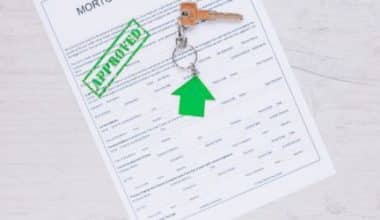Maine’s craggy coastline and one-of-a-kind lighthouses provide stunning scenery. As beautiful as the Pine Tree State is, the winters may be terrible, so Mainers are always grateful for the warmer months. The winter season is notorious for its harsh weather. According to the National Climate Assessment, storms and winter precipitation are more frequent and severe in the Northeast. Natural disasters or other threats like fire or burglary could harm your home. That’s why it’s crucial to have Maine homeowners insurance to safeguard your home and belongings. In this article, we will discuss Maine homeowners insurance companies, laws, and the cost of this insurance.
What is Maine Homeowners Insurance?
Maine homeowner insurance refers to a type of insurance policy designed to protect homeowners in the state of Maine from financial losses related to their property. This insurance typically covers the physical structure of the home, including the walls, roof, and foundation, against various risks such as fire, theft, vandalism, and certain natural disasters like windstorms.
Additionally, Maine homeowner insurance often includes coverage for personal belongings inside the home, such as furniture, electronics, and clothing. If these items are damaged or stolen, the insurance policy can help cover the cost of replacement.
Furthermore, homeowner insurance in Maine typically provides liability coverage, which protects the homeowner in case someone is injured on their property and decides to file a lawsuit. This coverage can help pay for legal expenses and medical bills if the homeowner is found liable for the injury.
It’s important for homeowners in Maine to carefully review their insurance policies to understand the specific coverages, limits, and deductibles. Policies can vary, so homeowners should tailor their coverage to meet their individual needs and ensure adequate protection for their property and assets.
Home Insurance Coverage Options in Maine
Maine homeowners should be aware of the frequent risks they encounter. In light of these greater dangers, the following supplementary forms of insurance protection may be worthwhile investments:
#1. Flood Insurance
Standard homeowner’s insurance policies do not cover flood damage, despite the fact that a sizable portion of Maine is at high or moderate risk of flooding. Though some insurers provide flood coverage as an add-on to existing policies, buying flood insurance often necessitates a stand-alone policy. The National Flood Insurance Program (NFIP) and some private insurers also provide flood insurance, so it’s possible you may get covered through any of those.
#2. Replacement Cost Coverage
By selecting this option, you can increase the likelihood that you will be compensated for the full cost of rebuilding your house and replacing any personal property that was lost in a fire or other disaster. Having a far higher level of financial protection to replace your house and your things like furniture, gadgets, clothing, jewelry, and artwork may be worth the increased premium, but not all homeowners qualify and not all companies offer this coverage.
#3. Water Backup Coverage
Although a sump pump’s inability to handle excessive rainfall is the most common cause of water backup and subsequent basement flooding, backup damage can occur whenever water backs up in any drain or sewer system. An endorsement of your homeowner’s insurance policy might provide this protection.
#4. Identity Theft Coverage
In 2021, identity theft cases in Maine surpassed 1,000 reports. Depending on the insurance, victims of identity theft may receive legal representation in the event of a civil judgment, criminal charges, audit, or hearing arising from the fraudulent activity of the “impostor.” Also, credit repair and identity restoration services may be part of some endorsement packages.
What Does Homeowner Insurance Cover in Maine?
Coverage for the insured’s home and any attached or detached structures, as well as personal property, liabilities, and loss of use, is common in Maine home insurance policies. Typically, a host is responsible for their guests’ medical bills. Your personal property insurance would protect you if something were to happen to your home or the items inside of it, such as your furniture or clothes. Loss of use coverage can also help you find temporary housing if your house is severely damaged and cannot be lived in during the restoration process.
Your insurance will protect you, but only to a limited extent, from certain types of losses.
What Is the Average Cost of Homeowners Insurance in Maine?
Insuring a $250,000 house in Maine will set you back an average of $947 per year, or 34% less than the national average of $1,428 per year, according to rate data from Quadrant Information Services.
Despite paying significantly less than the national average for home insurance, Mainers still pay more than homeowners in most other states. Homeowners in New Hampshire, for instance, pay an average yearly premium of $736, while Vermonters pay an average annual premium of $658. There’s a good chance this is because sourcing building supplies and labor takes longer in forested, out-of-the-way parts of Maine, making home repairs more of a hassle. In addition to the effects of the Gulf Stream, the Atlantic Ocean’s tropical cyclones, nor’easters, and severe winter storms have a substantial effect on the state of Maine.
What Are the Four Things Not Covered by Homeowners Insurance?
The typical home insurance policy is HO-3 coverage, which means it covers practically everything bad that can happen to you except for the specific things that are specifically excluded in the policy.
Here are four examples of things that many people assume will be insured but often are not.
#1. Termite Damage
Termites love life in Georgia, and every year they eat their way through thousands of dollars worth of wood in people’s homes.
Homeowners’ insurance typically does not pay for repairs due to wood-destroying insects like termites.
Many pest control firms will guarantee their work by re-treating your home free of charge if termites return; some will even guarantee their work on repairs, but this guarantee is often only valid for a year and calls for an annual inspection.
To a similar extent, nesting birds and rodents are typically not protected from any harm they may do.
#2. Earthquakes and Other Forms of Natural Disaster Damage
That also includes sinkholes, the appearance of which is possible. The additional cost of earthquake insurance is offset by the fact that Georgia rarely experiences earthquakes and so few residents bother with the coverage. Homeowners who reside near a body of water, such as a river or creek, may find this to be a significant omission. The National Flood Insurance Program is the only provider of flood insurance, and its policies are extremely costly.
#3. Act of War
Acts of war, a category of events not covered by homeowners insurance, refer to deliberate and widespread military operations or conflicts between nations. Insurance policies typically exclude damages resulting from wars, invasions, insurrections, acts of foreign enemies, and civil unrest. In the context of homeowners insurance, this means that if your property is damaged or destroyed due to acts of war, your policy won’t provide coverage for the associated repair or replacement costs.
This exclusion is based on the unpredictable nature and scope of war’s destruction, which could result in extensive and simultaneous damage to numerous properties. Homeowners are encouraged to understand their insurance policies thoroughly and, if they live in regions prone to geopolitical tensions or conflicts, consider specialized coverage options to protect their property and assets in the event of war-related damages.
#4. Intentional Acts
Home insurance does not cover “intentional acts of the homeowner,” which are deliberate actions by the policyholder that cause property damage or loss. The purpose of this exclusion is to deter people from intentionally harming their own property in order to collect insurance money. The policy will not pay to restore or replace a home or its contents if the damage was caused on purpose by the policyholder, such as in the case of arson or vandalism. Policyholders have an obligation to their insurance companies to operate in good faith and to take reasonable care of their property.
However, deliberate actions necessarily go against this rule. Intentional damage, whether for the purpose of insurance fraud or any other reason, renders insurance for the costs associated with repairing the damage null and void. In order to avoid legal trouble and financial loss, policyholders need to be informed of this exclusion.
Is Damage From Snow and Ice Covered by Homeowners Insurance?
Fortunately, homeowner’s insurance frequently covers damage from snowstorms. You are probably covered for snow loads as part of your coverage. Your policy should pay out if, for instance, your roof or windows break because of a heavy snowfall piled up against them. Some insurance policies will cover pipe bursts or building collapses caused by ice.
However, if freezing causes your plumbing or heating system to fail and you haven’t tried to prevent it (for example, if you knew about an insulation problem and didn’t take steps to repair it), your homeowner’s insurance may not cover the damage. If the freezing temperatures damage your swimming pool or any aspect of your home’s structure, your insurance company may deny you coverage. If you have questions about what your policy covers, you should consult your insurance agent before purchasing protection.
Maine Homeowners Insurance Companies
We gathered thousands of quotes from the leading insurance companies across Maine and analyzed customer satisfaction ratings to determine which policies offered the best value for money to Maine homeowners. Here are some of the best homeowners insurance companies in Maine:
#1. Vermont Mutual
We recommend Vermont Mutual to Mainers due to their affordable prices, high marks in customer satisfaction surveys, and wide range of policy benefits. Homeowner insurance from Vermont Mutual costs an average of $391 annually, or 56% less than the state average.
The National Association of Insurance Commissioners (NAIC) gives Vermont Mutual an exceptional Complaint Index score of 0.50. That’s half the number of complaints seen by similar-sized home insurance providers.
In the event of a system failure, such as a mechanical or electrical breakdown, the organization offers optional coverage of up to $50,000. The Elite endorsement shields you against the high cost of fixing service lines, including plumbing, electrical wiring, and water supply. When winter weather causes trees to fall on electrical lines or pipelines to freeze, this can be useful.
Vermont Mutual’s lack of an online quote or purchase option is its biggest drawback. To get help, you’ll need to contact a local agent. However, policyholders can do both of those things electronically now.
#2. State Farm
Standard homeowners insurance from State Farm is affordable. State Farm’s annual home insurance premiums average $593, or $49 per month. That’s a savings of roughly $344 a year compared to the state average of $895.
Furthermore, in Maine, State Farm has built a solid reputation thanks to its focus on its customers’ needs. According to the NAIC, the number of complaints received by the company is low when compared to other home insurance providers of its size. All State Farm customers are required to engage with an agent who will help them through the claims process.
State Farm’s lack of discounts is its main drawback. Most homeowner insurance companies in Maine offer discounts for common safety features like alarm systems and impact-resistant roofs.
#3. Amica
We ranked Amica as the third-best homeowners insurance company in Maine because of the variety of discounts and policy alternatives it provides.
Standard Choice insurance from Amica protects your house and any structures on your property, your belongings, and the expense of temporary housing if your home is damaged and uninhabitable. Computer equipment and water backup coverage are two of the available options.
The Platinum Option policy has all the benefits of the basic policy and more. The cost of repairs or rebuilding is covered to a greater extent, and insurance on valuables like jewelry is extended. Additionally, there is protection against credit card fraud and increased protection for commercial property.
Amica provides both dividend and non-dividend options for their plans. In states where they are legal, dividend plans give policyholders back a portion of their premium payments. These states are California, Florida, Missouri, and North Carolina. Bundling house and vehicle insurance is one way to save money with Amica, but there are also discounts for loyalty and safety measures like sprinkler systems.
Our sample policy, which applies the same criteria to all of the examined businesses, indicates that Amica has a monthly premium of $167.
In addition, AM Best, an outside rating organization, has given the corporation an A+ grade. Homeowners insurance coverage from this provider is unavailable in the states of Alaska and Hawaii.
#4. Farmers
More than any other New England state, Maine is home to almost 600 mobile home parks. Whether it’s a primary or secondary dwelling, Farmers’ subsidiary, Foremost, provides comprehensive protection for mobile homes. Farmers provide protection against dangers such as wind damage, personal injury liability, and food spoilage caused by a loss of electricity.
Burst water pipes and sewage and drain blockages are two of the unusual hazards that might be included in your policy’s customization options. You can even get protection during the time it takes to physically relocate your household. Farmers Insurance Group provides seasonal protection for mobile and modular dwellings near water from perils including ice dams and lightning strikes.
According to the NAIC Complaint Index, Farmers have an average level of customer satisfaction of 1.18. That’s around 18% more than what comparable-sized insurers get in complaints, so it’s not good.
Farmers’ home insurance premiums are often higher than those of competing businesses. In Maine, for example, the average annual cost for a regular homeowner insurance policy is $1,463. You should get in touch with a broker to find out about prefab or mobile house pricing specifically.
#5. Concord Group
Concord Group provides the most comprehensive homeowner insurance package available in Maine. Additional coverage options beyond the basics are available for an additional premium. Endorsements can cover things like your property being vandalized or stolen, having to upgrade to comply with new regulations, or your electrical or mechanical systems breaking down.
Furthermore, Concord Group also provides an extremely useful endorsement that pays for the additional expense incurred when using sustainable materials to replace or repair damaged sections of your home. Electric and heating systems that use less energy are covered up to $20,000 per claim.
Concord provides excellent service to its local customers. The NAIC has given Concord Group a Complaint Index score of 0.41, which indicates that the company receives 59% fewer complaints than the average insurance company of its size.
Concord Group is a smaller, regional insurer; therefore, there are fewer channels for getting help or making changes to your policy online. To make a claim or purchase a policy, for instance, you’ll need to contact a local agent via phone.
What to Avoid With Homeowners Insurance
When dealing with homeowners insurance, there are several things you should avoid:
Underinsure your property. Make sure your coverage is adequate to rebuild your home and replace your belongings in case of a disaster. Underinsurance can lead to significant financial losses.
Not understanding your policy. Read your policy thoroughly and understand what is covered and what is not. Don’t hesitate to ask your insurance provider for clarification on any confusing terms or conditions.
Neglecting to update your policy. Inform your insurance provider about any significant changes in your home, such as renovations or additions. Keeping your policy up-to-date ensures your coverage accurately reflects your home’s value.
Ignoring additional coverage options. Consider additional coverage for valuable items such as jewelry, art, or electronics. Standard policies might not fully cover these items.
Neglecting to shop around. Don’t settle for the first policy you come across. Compare quotes from different insurance providers to find the best coverage at the most competitive price.
Filing small claims. It might be tempting to file a claim for minor damages, but it could lead to increased premiums. Save your insurance for significant losses and handle minor repairs yourself if financially feasible.
Not considering the deductible. A higher deductible can lower your premium, but make sure you can afford to pay it out of pocket in case of a claim.
Remember, it’s crucial to thoroughly read and understand your policy and consult with your insurance provider to make informed decisions about your coverage.
Is It Better to Have a High or Low Deductible for Home Insurance?
Your own financial status and risk tolerance will determine whether a high or low deductible is appropriate for your home insurance policy.
High Deductible: Opting for a high deductible typically means lower monthly premiums. This can be a good option if you have savings set aside to cover the higher deductible in case of a claim. Choosing a high deductible is a way to save on your premium costs.
Low Deductible: A low deductible means you’ll pay less out of pocket if you need to file a claim, but your monthly premiums will likely be higher. This can be a better option if you prefer to have more predictable costs and don’t have significant savings to cover a high deductible.
Consider your financial stability and how much you can comfortably afford to pay out of pocket in case of a claim. If you have a robust emergency fund and can handle a higher deductible without financial strain, choosing a high deductible might make sense to save on premiums in the long run. However, if paying a high deductible would be a financial burden, a low deductible might be a better choice, even if it means higher monthly premiums.
Also, it’s essential to strike a balance that works for your budget and provides you with adequate coverage. You might want to consult with your insurance agent or financial advisor to determine the best deductible for your specific situation.
Maine Homeowners Insurance Laws
Maine homeowners insurance laws can encompass a variety of regulations and requirements. Here are some general aspects of homeowners insurance laws in Maine that were applicable at that time:
No Mandatory Insurance Requirement: Maine law does not require homeowners to have insurance. However, if you have a mortgage, your lender may require you to maintain homeowners insurance until the mortgage is paid off. This is a common requirement among mortgage lenders to protect their investment in the property.
Insurance laws: The Maine Bureau of Insurance oversees insurance companies doing business in Maine. The bureau ensures compliance with state insurance laws and protects consumers’ rights. They can provide guidance and support if you have issues with your insurance provider.
Consumer Rights: Maine law protects consumers from unfair insurance practices. You have the right to file a complaint with the Maine Bureau of Insurance if you feel that an insurance company has treated you unfairly.
Filing Claims: Homeowners have rights and responsibilities when it comes to filing insurance claims. Insurance companies are expected to handle claims in good faith, and homeowners have the right to expect fair and timely processing of their claims.
Disclosures: When purchasing a home, sellers are typically required to disclose any known issues with the property. Insurance history might also be part of this disclosure process.
Is It Illegal to Not Have Homeowner Insurance in Maine?
Maine law does not mandate homeowners to have insurance on their properties. However, if you have a mortgage, your lender may require you to maintain homeowners insurance until the mortgage is paid off. This requirement is common among mortgage lenders to protect their investment in the property.
While Maine law does not make it illegal to be without homeowners insurance, it’s essential to check the specific terms of your mortgage agreement. Violating the terms of your mortgage contract by not maintaining the required insurance could have legal consequences, including potential financial penalties or even foreclosure in extreme cases.
How to Find the Best Cheap Home Insurance in Maine
Finding the cheapest homeowners insurance in Maine isn’t necessarily the most important factor for most people. Other factors, such as coverage and customer service, may be more important to you. You could choose a house insurance provider that lives up to your standards by employing the following methods:
#1. Understand What You Need
Size, features, how you want to utilize the space, and your comfort level with risk are just a few of the variables that can affect the amount of home insurance you’ll need. If you want to avoid over- or under-insuring your house, it can be helpful to have a firm grasp on just how much protection you’ll need.
#2. Compare Shops
Getting free estimates from multiple insurance providers is highly recommended by experts. Using this strategy, you can zero in on the most suitable house insurance provider for your needs. It’s crucial to be consistent across applications and quotes when selecting coverage options and restrictions.
#3. Make Use of Discount
In order to help you save money on your homeowner’s insurance, the vast majority of insurance companies provide discounts. Savings on insurance premiums may be possible if you get numerous policies from the same provider, install a home security system, and never file any claims.
#4. Maintain Your Home
Maintaining your house is one of the best ways to save money on homeowner’s insurance premiums over the long haul. Maintaining your property well can cut down on the frequency and severity of insurance claims, which will in turn lower your premium.
Is Homeowners Insurance Required in Maine?: Bottom Line
In conclusion, natural disasters are quite rare in Maine. Your home is at risk from East Coast storms. Hail, snow, and subfreezing conditions, for instance, can wreak havoc on your home’s framework and pipes. You would have to pay out of pocket for these expensive repairs if you didn’t have homeowner’s insurance in Maine.
Frequently Asked Questions
Can you negotiate homeowners insurance?
No, the cost of homeowner’s insurance is not negotiable. However, since insurance companies employ varying underwriting strategies, quotes for the same policy might vary widely. It’s a good idea to compare shops and get price estimates from multiple service providers.
What Is the 80% Rule in Homeowners Insurance?
Many insurance companies adhere to the 80% rule, which states that policyholders must purchase enough insurance to replace at least 80% of their home’s value. Instead, the insurance company will only cover a percentage of the total bill.
Similar Articles
- DWELLING INSURANCE: How Much Dwelling Coverage You Need
- HOA INSURANCE: What Is It & What Does It Cover?
- BEST INSURANCE COMPANIES IN NORTH CAROLINA 2023
- BEST HOMEOWNERS INSURANCE IN NEW JERSEY FOR 2023
- THE TOP BEST HOME WARRANTY PROVIDERS 2023






